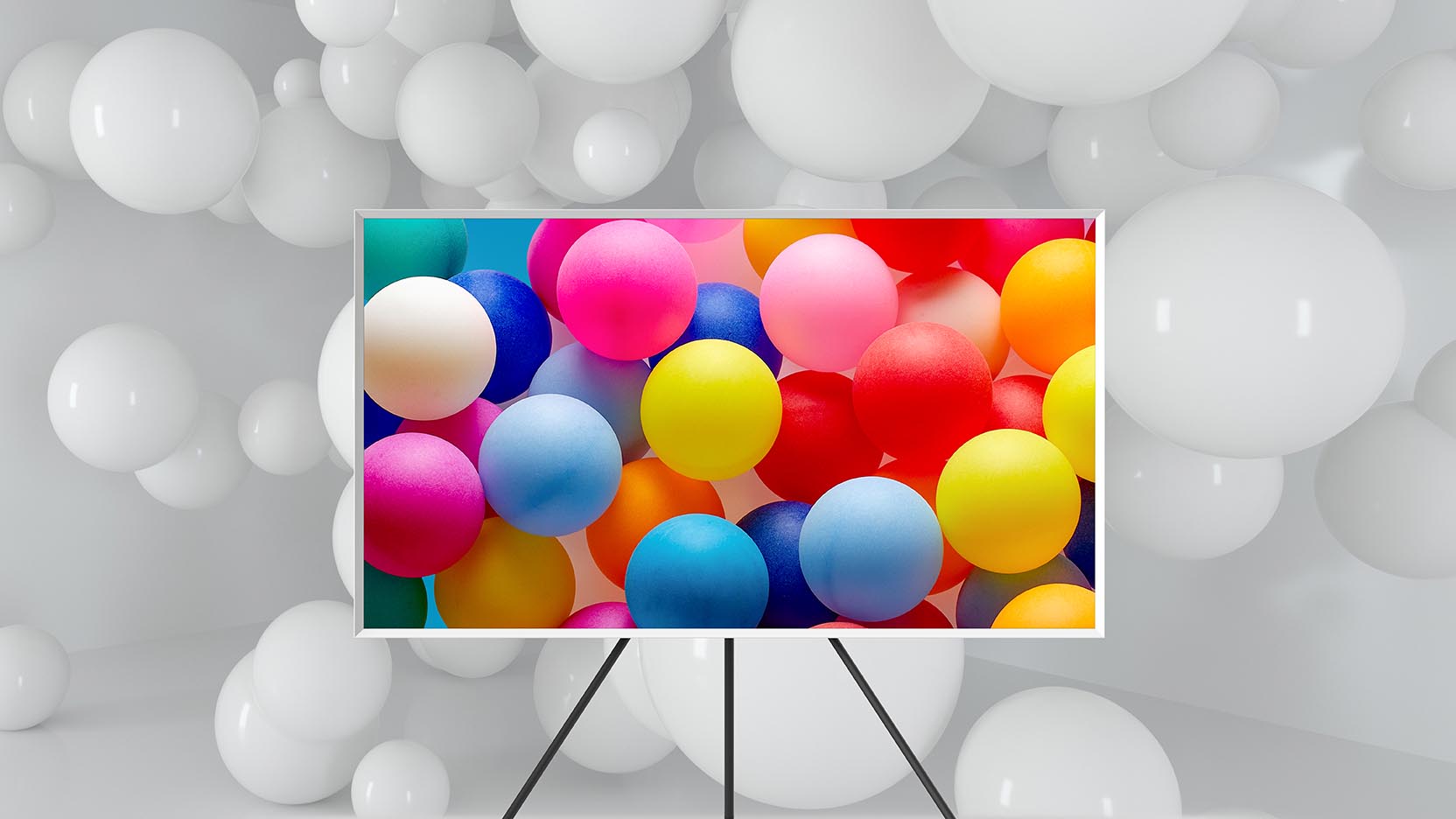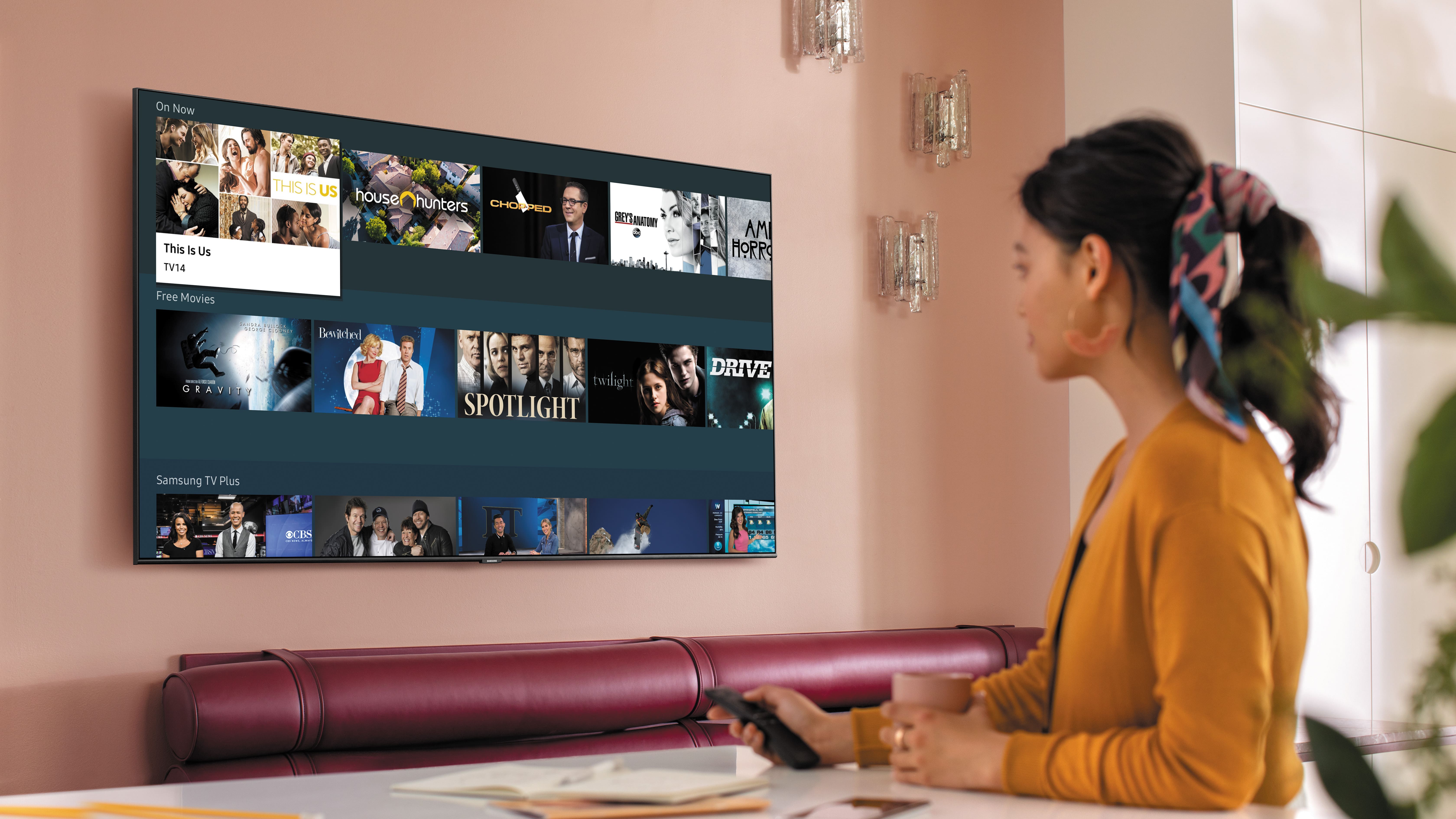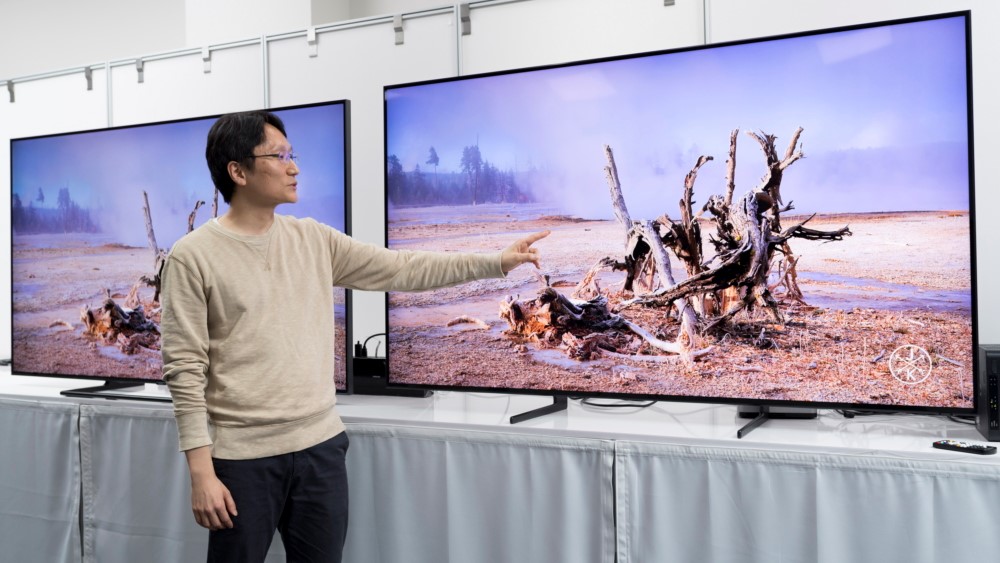New Samsung TVs could ditch LCD for OLED – as soon as next year
Rumors suggest that Samsung OLED TVs are on the way

Sign up for breaking news, reviews, opinion, top tech deals, and more.
You are now subscribed
Your newsletter sign-up was successful
Say goodbye to Samsung LCD screens, as a new report from Korea IT News (via CNET) is saying that the world's largest TV maker could make the move to OLED – or at least a kind of OLED – as soon as next year.
The report states that Samsung Display will invest 13.1 trillion won (around $12 billion / £8.5 billion / AU$15.5 billion) "by 2025" to develop a new mass production line for its QD-OLED tech, with production due to start in 2021 for the creation of 65-inch TVs "or larger".
The move will also see LCD production shut down at Samsung Display entirely, something that was initially expected to happen in 2020, but was postponed when Samsung's "oversupply of LCDs turned into short supply" as TV demand surged during the start of the Covid-19 pandemic.
The report builds on years of rumors that Samsung was developing a 'QD-OLED' hybrid screen, which would combine an OLED TV panel with the quantum dot technology underpinning Samsung's popular QLED range.
- OLED vs QLED: which is better?
- Best Samsung TV: amazing flatscreen TVs worth buying
- What are the best 8K TVs to buy?
How does it work? QD-OLED is said to use a self-emissive OLED panel to emit blue light, as well as a quantum dot filter to convert this light into other colors – bypassing the need for a backlight, because the OLED panel acts as its own light sources, but still utilising QLED tech to enhance contrast. The exact effect, or level of picture quality, though, is yet to be seen, but it's expected to allow for higher brightness and even wider color gamuts compared to traditional OLED.
There are no official models or public timelines for Samsung debuting the technology, but this latest report matches up with what market analysts were saying last year – with Omdia predicting that mass production for Samsung's QD-OLED sets would start in late 2021, for a 2022 release.
A change of tune

The company has resisted making the move to OLED TVs for some time now, despite it being the premium TV panel technology of choice for LG Electronics, Sony, Philips, and Panasonic. Along with TCL and Hisense – which only briefly experimented with the slapdash O8B OLED – Samsung has preferred to push the limits of picture quality on LCD, with the greater peak brightness and hardware longevity that it affords.
Sign up for breaking news, reviews, opinion, top tech deals, and more.
The appeal of QD-OLED – aimed at being a kind of quantum dot shortcut towards OLED’s visual advantages, with far lower production costs – is in offering TV brands a cheaper alternative to OLED panels, as well as offering customers a cheaper entry point to equivalent performance.
It would be quite a sudden shift for Samsung, though, which has been steadily improving its QLED range with a greater focus on 8K TVs, as well as 2021's Neo QLED iterations that incorporate Mini LED backlight technology for improved brightness control and contrast. Could all that progress be binned to pursue a QD-OLED strategy?

It's likely that Samsung would start somewhat small, with a single QD-OLED model releasing in 2022 to gauge consumer interest, before unveiling a trio of iterated models in 2023 that showcase the technology at a mix of price points – varying the audio output, resolution, and build quality.
We saw a similar strategy when Samsung started pushing 8K TVs in earnest, though QD-OLED's potential as a cost-effective alternative to OLED could see Samsung push the technology faster from the off.
Back in 2019, Samsung was telling us that it believed "various technology improvements should precede for the existing OLED panel technology to be adopted to TVs, and no decision has been made on whether we will adopt the QD-OLED panels to our TVs."
It looks like, maybe, just maybe, Samsung has found the 'improvement' it was after.
- Check out every new Samsung TV coming this year

Henry is a freelance technology journalist, and former News & Features Editor for TechRadar, where he specialized in home entertainment gadgets such as TVs, projectors, soundbars, and smart speakers. Other bylines include Edge, T3, iMore, GamesRadar, NBC News, Healthline, and The Times.